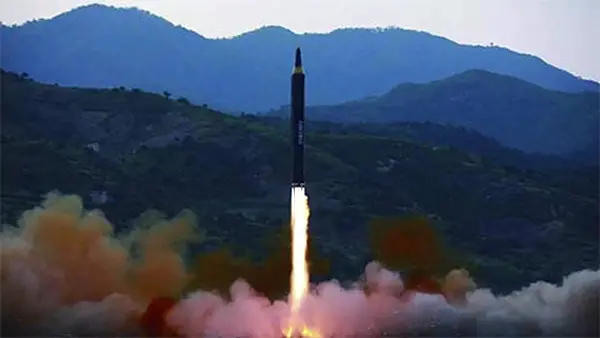Around 400 people, most of whom with Chinese or Korean ancestry, gathered in front of the Australian Parliament House in Canberra on Tuesday, protesting against Japanese Prime Minister Shinzo Abe for his re- interpretation of Japan's pacifist constitution.
The protestors also warned the Australian government of closer ties with Japan.
Abe, on a four-day visit to Australia, was delivering a speech to a joint sitting of the Parliament when the protest was staged out of the building.
The majority of the crowd traveled from Sydney for four hours to brave Canberra's chilly winter morning.
They held banners which read "the Japanese government must reflect on the history", "Abe out", "Abe go home", "No distortion of history", among others.
"Since taking office, Abe paid tribute to the Yasukuni Shrine, moving towards collective self-defense, depriving the soul of the pacifist constitution, turning Japan to the rightist direction, all of these have enraged overseas Chinese," said Qian Qiguo, president of Australian Confucius Research Society.
"Abe denied the history of WWII, denied the atrocities committed by Japan during the war and refused to apologize to the Comfort Women. Overseas Chinese wanted to tell him by today's protest that he is not welcomed here, that he is a trouble maker in Asia and a big threat to world peace."
Leaders from the Chinese and Korean communities also handed over an open letter to Australian Prime Minister Tony Abbott, Minister for Foreign Affairs Julie Bishop and members of Parliament, expressing the concerns over Japan's re-militarization and Australia's tilting foreign policy."In the open letter, we clearly mentioned that we oppose to Japan's re-militarization and ask Japanese government to accept the fact of sex slavery crime and apologize to those victims of sex slavery. Also to the Australian government, we demand and strongly recommend Australian government to play a neutral policy towards all three countries, not towards one country like Japan," said Sang D. Ok, chairman of the Korean Committee of United Australian Korean-Chinese Alliance Against Japanese War Crimes.
During his address to the parliament, Abe expressed condolence to Australian soldiers who died in the Second World War.
However, he has extended no condolence to the war victims in China and Korea. His condolence was regarded as "hypocritical" by both Qian and Ok.
"That's his hypocrisy, because he needs Australia's support to re-militarization...If Abe is apologizing to Australian victims, why can't he apologize to those victims of war crimes and sex slavery in China and Korea, Japan's two close neighbors. That is great hypocrisy," said Ok.
Qian said many Australian academics and politicians, including former foreign minister Bob Carr, have cast doubt on the government's embrace of a closer relationship with Japan.
"The true face of Abe is that he will lead Japan to the extreme rightist direction and eventually bring Japan to calamity," he said.
 简体中文
简体中文




